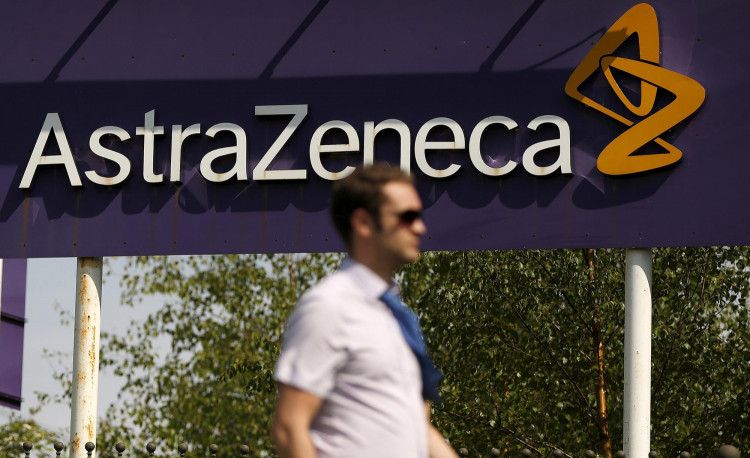Britain-Sweden multinational pharmaceutical company AstraZeneca PLC has paused all clinical trials of the COVID-19 drug it is developing with the University of Oxford after a clinical-trial participant in the UK suffered a suspected serious adverse reaction.
South Korea said Wednesday it would look into the suspension and review its participation in the trial. "It's not rare that clinical trials get suspended as various factors interact," health ministry official Yoon Tae-ho told a briefing.
The decision to put the trial on hold has affected clinical trials conducted by other vaccine makers - which are looking for signs of similar reactions, health-news website Stat News, which first reported the suspension, said.
AstraZeneca said it was reviewing the event and promised it wouldn't delay its study. AstraZeneca was on track to become one of the first drugmakers to deliver results from a large trial of a COVID-19 vaccine.
"As part of the ongoing randomized, controlled global trials of the Oxford coronavirus vaccine, our standard review process triggered a pause to vaccination to allow review of safety data," company representative Michele Meixell told the Financial Times and other news agencies including Al Jazeera late Tuesday.
The nature of the illness was not disclosed although the participant is expected to recover from a "suspected serious adverse reaction." The U.S. Food and Drug Administration defines an adverse event as one in which evidence suggests a possible relationship to the drug being tested.
According to a report in The New York Times quoting a person familiar with the situation, the UK participant was found to have transverse myelitis - an inflammatory syndrome that affects the spinal cord and is often sparked by viral infections.
Whether the illness was directly linked to AstraZeneca's vaccine is unclear, the report said. AstraZeneca declined to comment.
The trial representative said: "This is a routine action which has to happen whenever there is a potentially unexplained illness in one of the trials, while it is investigated, ensuring we maintain the integrity of the trials," he added. "In large trials, illnesses will happen by chance but must be independently reviewed to check this carefully."
AstraZeneca's New York Stock Exchange share price dropped more than 6 percent in after-hours trading late Tuesday in New York after trade publication STAT first reported that the trial had to be stopped.
The vaccine was described by the World Health Organization as probably the world's leading candidate and the most advanced in terms of development. The suspension dims prospects for an early rollout. There have been reports the U.S. was aiming for a fast-track approval before the November presidential election, Reuters reported.
The U.S. National Institutes of Health, which is providing funding for AstraZeneca's trial, declined to comment. Competing drug company Moderna said in an emailed statement it was "not aware of any impact" to its COVID-19 vaccine study.
Nine leading U.S. and European vaccine developers pledged Tuesday to uphold scientific safety and efficacy standards for their experimental vaccines despite the urgency to contain the coronavirus pandemic.
Julie Fischer, an associate research professor in the department of microbiology and immunology at the Center for Global Health Science and Security at Georgetown University, told Al Jazeera such a pause was "part of the process" of drug development and clinical trials.
Florian Krammer, professor of microbiology at the Icahn School of Medicine at Mount Sinai said the fact a patient had fallen ill underscored the need for extensive trials. "It shows you that the evaluation process works, and why we need Phase III trials," he said on Twitter.
The head of the U.S. Food and Drug Administration said in August the normal approval process could be bypassed for a COVID-19 vaccine if officials were convinced the benefits outweigh the risks. The comments prompted a call for caution from the World Health Organization.
Developers worldwide have yet to produce large-scale trial data showing actual infections in participants, but Russia granted approval for a COVID-19 vaccine last month, prompting some Western experts to criticize a lack of testing.





